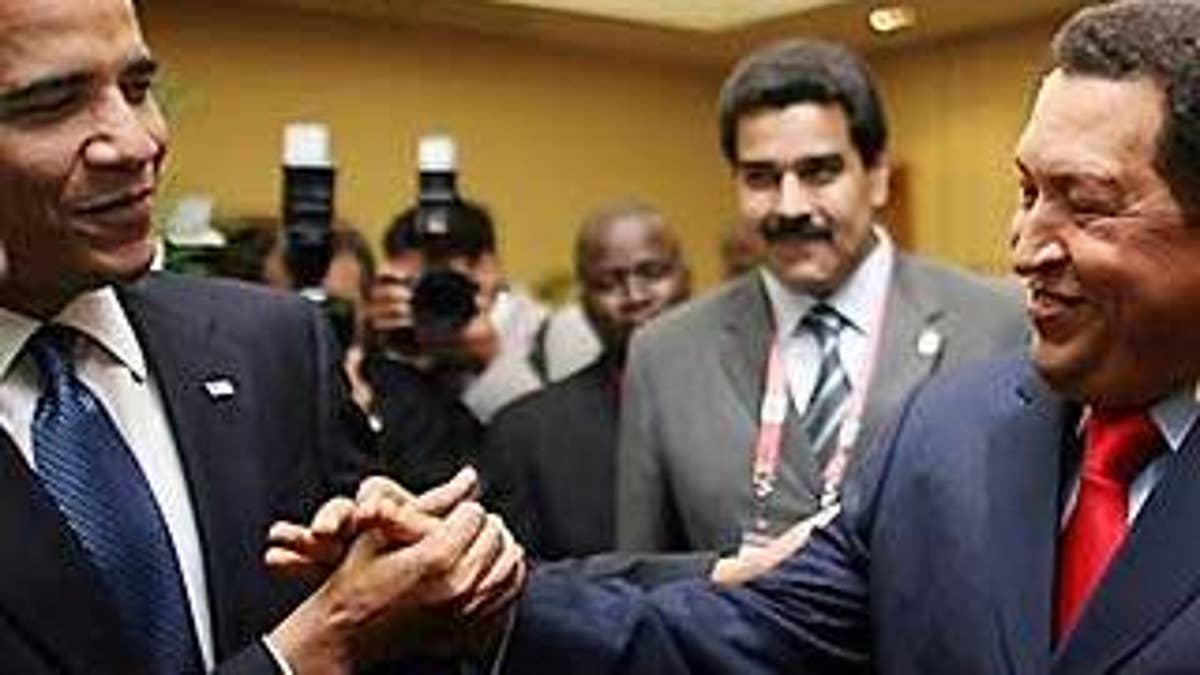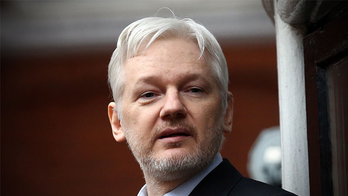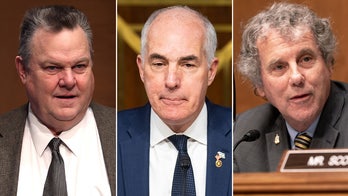
WASHINGTON -- In matters of national security during his first 100 days in office, President Obama has steered a fairly straight course down the political middle, disappointing supporters seeking a new direction for the country and leaving critics puzzled about when the other shoe may drop.
"It's Bush III," Winslow Wheeler, a fellow at the Center for Defense Information in Washington and author of "America's Defense Meltdown," said of the resemblance of Obama's national security policies to those of his predecessor, George W. Bush.
"In general, the Obama administration has taken a sensible, centrist approach to national security," said Thomas Mahnken, a former senior defense official in the Bush administration.
Despite being a largely unknown quantity on national security during the presidential campaign, Obama has kept many pledges to reverse Bush administration policy, but he has managed them in a way that leaves national security hawks hopeful.
The president is on track to to pull troops out of Iraq by 2011, but has heeded the advice of military commanders and is leaving a large contingency of non-combat troops on the ground.
He is also pushing ahead with a decision to double the number of U.S. troops in Afghanistan, which he described during his campaign as the real battleground against terrorism.
"The right should be delighted, he's doing the (Gen. David) Petraeus plan, which is the Bush plan in Iraq, he's going even deeper on Afghanistan and he's increasing the defense budget that George Bush left on his doorstep," Wheeler said. "The left were promised some sort of change and they're not getting it."
For Obama's usual critics, that kind of complaint is welcome news.
"We're on the right track in both places," Senate Minority Leader Mitch McConnell, R-Ky., said about Iraq and Afghanistan after returning from a trip to Iraq this month. He said Obama's decision not to withdraw troops faster than the 2010 deadline established by Iraq and the Bush administration was a wise one.
He also endorsed Obama's recently announced plan to send some 21,000 more troops to Afghanistan to fight the insurgency there. "The present strategy in Iraq and Afghanistan, which from my point of view is hardly distinguishable from the strategy of the previous administration, is the right thing to do," McConnell said.
Aside from the military fronts, for both sides, what is most confounding about the first 100 days is Obama's handling of the broad issue that is no longer called the "War on Terror." Almost immediately after entering office in January, the president announced his administration would close down the detainee prison at Guantanamo Bay.
But his Justice Department has upheld the position of the Bush administration that detainees do not have habeas corpus rights and has invoked its predecessor's "state secrets" argument to block a lawsuit against the National Security Administration's wiretapping program.
Though some high-profile Republicans like Obama's former presidential opponent, Sen. John McCain, have praised the move to close Guantanamo, the president's indecision about what to do with the remaining detainees is troubling to some.
"As every new administration finds out, there is a difference between campaigning and governing," Mahnken said. "There were plenty of folks in the Bush administration who would have loved to shut down Guantanamo Bay -- the question was always what to do with the detainees. The Obama administration has yet to answer that question."
But the real headline-grabber of late has been the administration's decision to release Justice Department memos that outlined the Bush administration's legal arguments for permitting "enhanced" CIA interrogation techniques against high-value prisoners.
After first suggesting that it's time to look forward, not backward, Obama said Tuesday that while he does not support going after those who carried out the interrogations under the guidelines, those who crafted the guidelines -- former Justice Department attorneys -- may be in hot water.
The argument has raised eyebrows among the left, who say the policy runs counter to Obama's pledges on the campaign trail to hold accountable those he said "tortured" prisoners. Critics on the right, meanwhile, have blasted the administration for releasing the memos, arguing the move puts national security secrets into the hands of terrorists.
On other issues, the president has also won mixed reviews.
After North Korea launched a long-range rocket over Japan on April 4, the Obama administration pledged to pursue hobbled six-party talks with Pyongyang and ushered new sanctions through the U.N. Security Council. North Korea has since walked out on those talks and kicked out inspectors from the U.N. International Atomic Energy Agency.
Conservatives say the president's handling of ongoing nuclear threats from North Korea was feckless. Supporters of the president said the U.N. approach was the right way to go.
"The administration's answer was hand-wringing, more rhetoric and, oh yes, the obligatory trip to the U.N. Security Council so that it could scold the defiant DPRK," John Bolton, former U.S. ambassador to the U.N., wrote in a Wall Street Journal op-ed on April 6.
"Beyond whatever happens in the Security Council, Mr. Obama seems to have no plan whatever," he wrote.
But Lorelei Kelly, national security program director of the American Progressive Caucus Policy Foundation, said Obama is taking an approach that has worked in the past.
"The Obama administration's response to the North Korean launch is wise and based on recent U.S. experience: stay calm and carry on with international cooperative efforts to negotiate. A panic reaction is counter-productive and this launch -- while notable -- does not merit an outsized response," she said.
On money matters, the Pentagon has announced the suspension of hobbled weapons programs and a series of cutbacks in the defense budget, living up to another Obama campaign pledge. Defense Secretary Robert Gates, the lone Cabinet member held over from the Bush administration, revealed that the newly trimmed budget will also shift its focus to counter-insurgency operations from conventional large-scale systems.
Observers like Wheeler say the military budget does not reflect the radical reforms Obama had campaigned on last year. He points out that the overall budget seeks $534 billion for fiscal year 2010 -- $10 billion more than Bush's blueprint.
While Gates made some necessary cuts here, he has added money there, Wheeler said. "For people who are more serious about reforming the Pentagon -- there is not much out there," he said.
Republicans, on the other hand, complain that plans to slow down or cap production of existing weapons systems and fleets will hit defense contractors hard and could actually slow overall growth in the economy.
They also complain about the decision to cut $1.4 billion to the Missile Defense Agency, which has been building a defense shield, though the president has pledged to go forward with a treaty signed with the Czech Republic under the Bush administration to build a radar-tracking device for a global missile defense shield in that country.
Critics say the Pentagon proposals put the military in a precarious position.
"We have reached a crossroads where we will choose to either invest in the modernization and readiness of our military or mistakenly 'kick the can down the road' once more. Based on the projected defense budget for the next 10 years, it looks like this administration is taking us down a path that leads to a weaker military that is poorly equipped," Sen. James Inhofe, R-Okla., said in the Senate earlier this week.
"I really think Gates has set them up for a troubling future, because he'll be long gone before the troubles come home to roost in the next couple of years," said James Carafano, a national security expert at the conservative Heritage Foundation.
While Gates has confounded some conservatives with his proposed changes, some on the left say keeping him was a smart move by the president.
"This decision -- though disappointing to some who sought wholesale change -- has been strategically wise," Kelly said.
Gates has restored morale within the Pentagon, Kelley said, and the effort to modernize the military to accommodate new realities jibes well with Obama's "transformative" and "realist" outlook.
Overall, Obama's first 100 days managing the nation's national security have left both supporters and critics wanting to see more.
"How he is doing is just simply too soon to tell," Carafano said. "He hasn't really done anything. The real tests are coming ahead."
"The national security team is competent and sober. However, the president hasn't had to make any big, difficult decisions yet. He will," Mahnken said.




